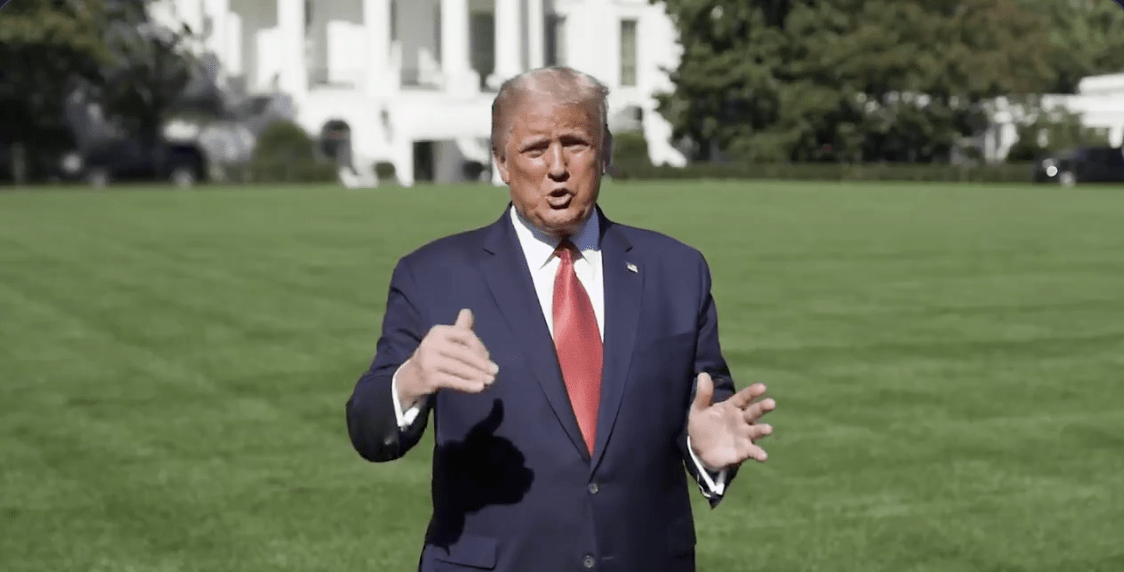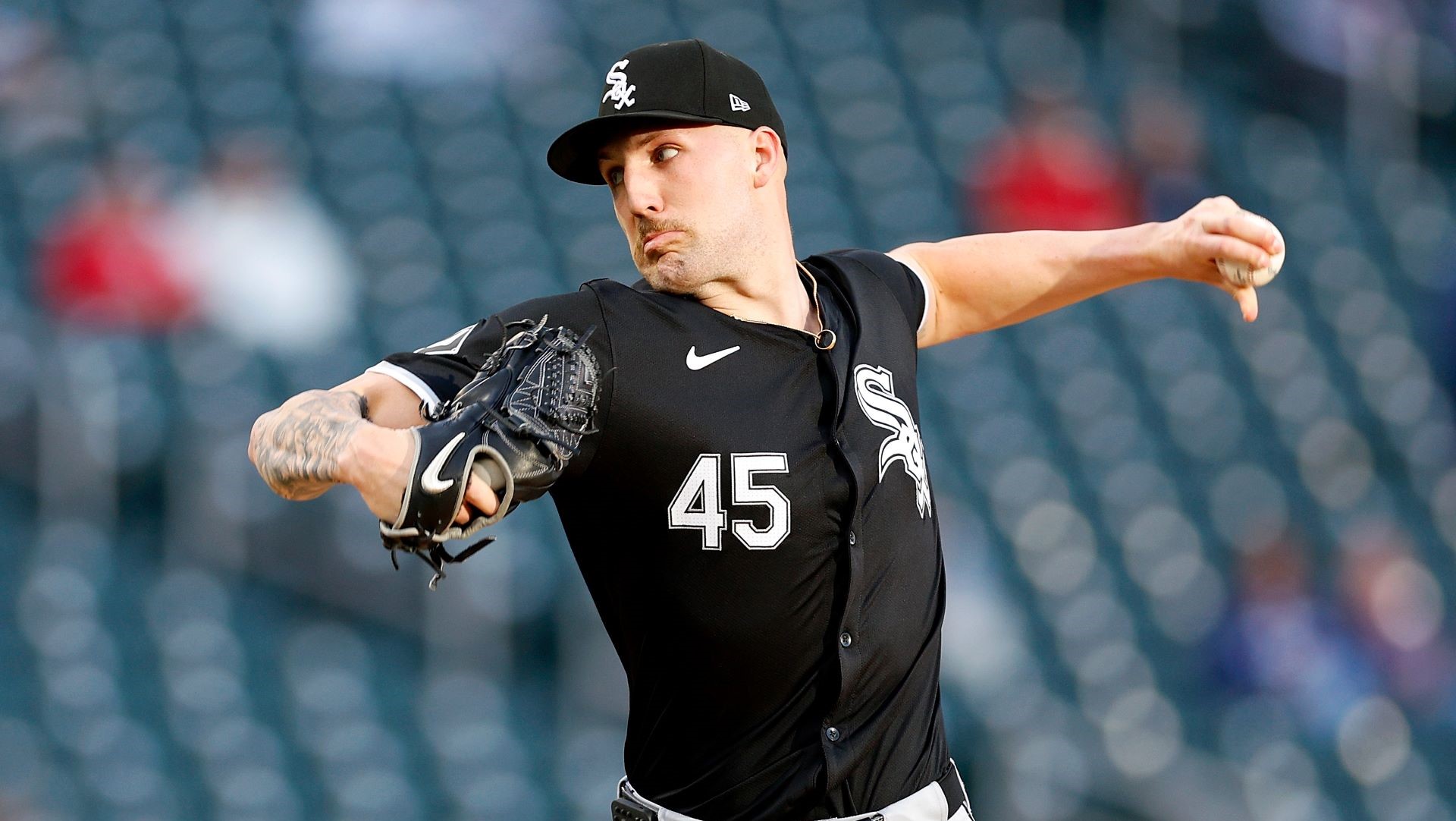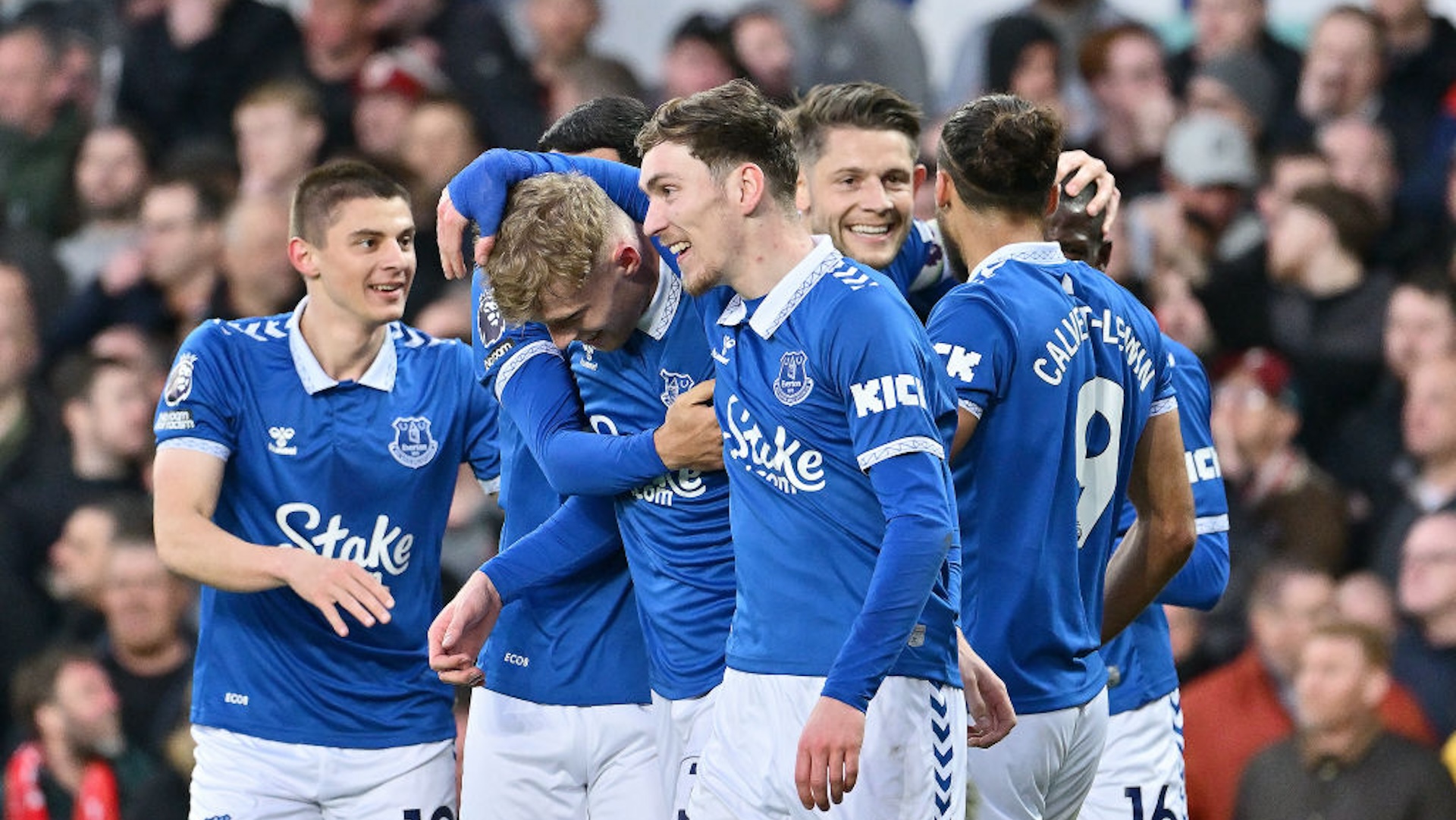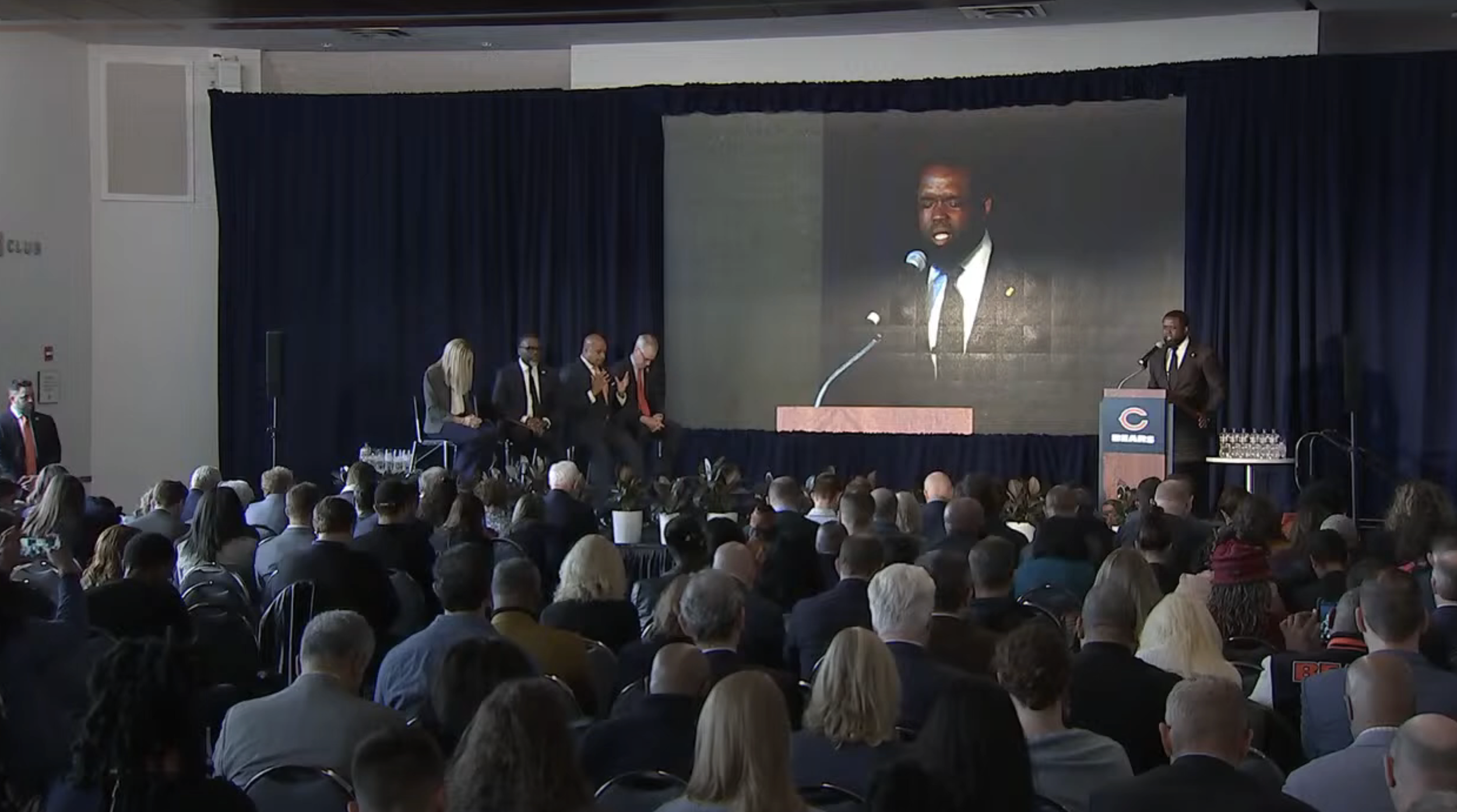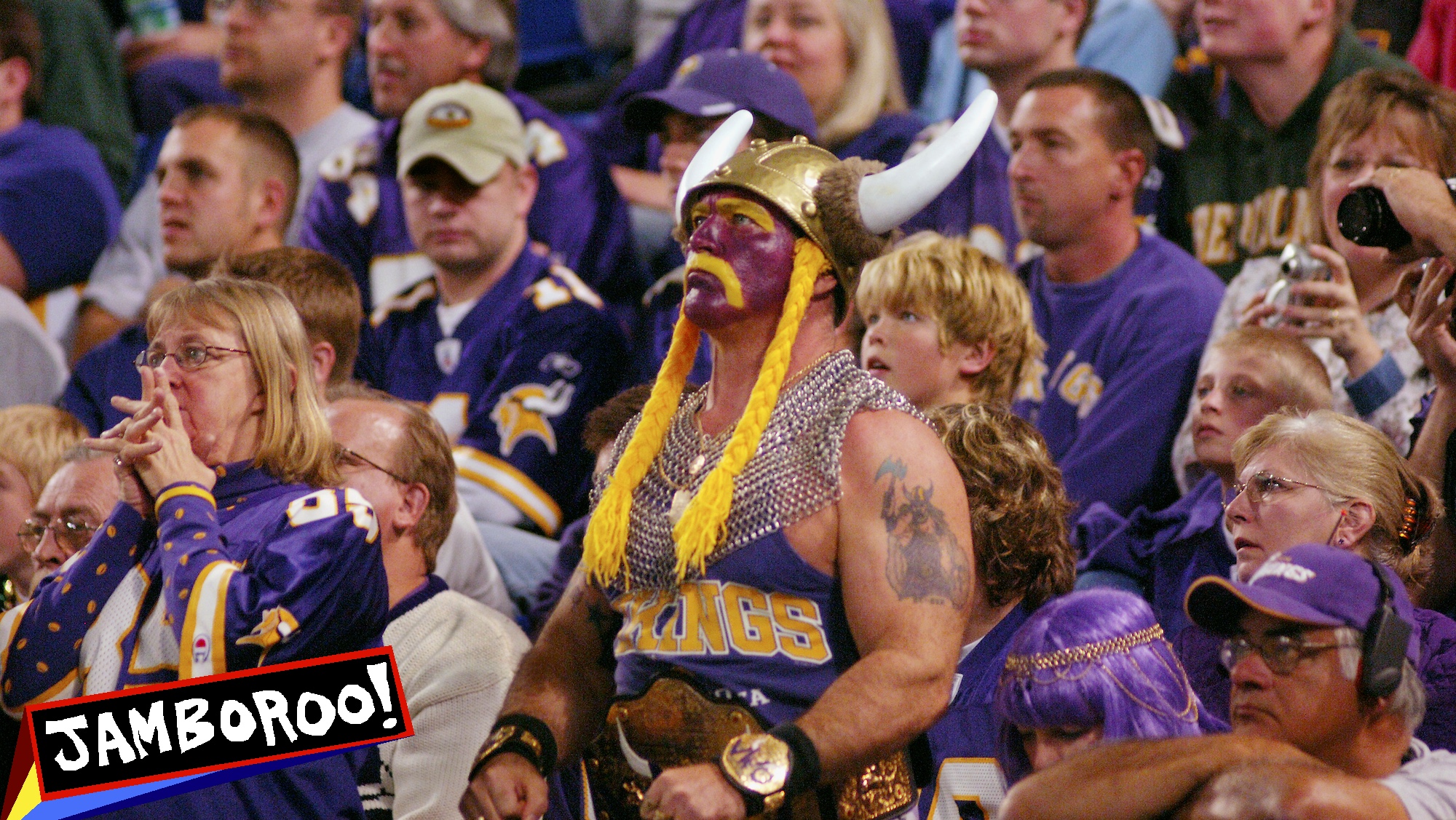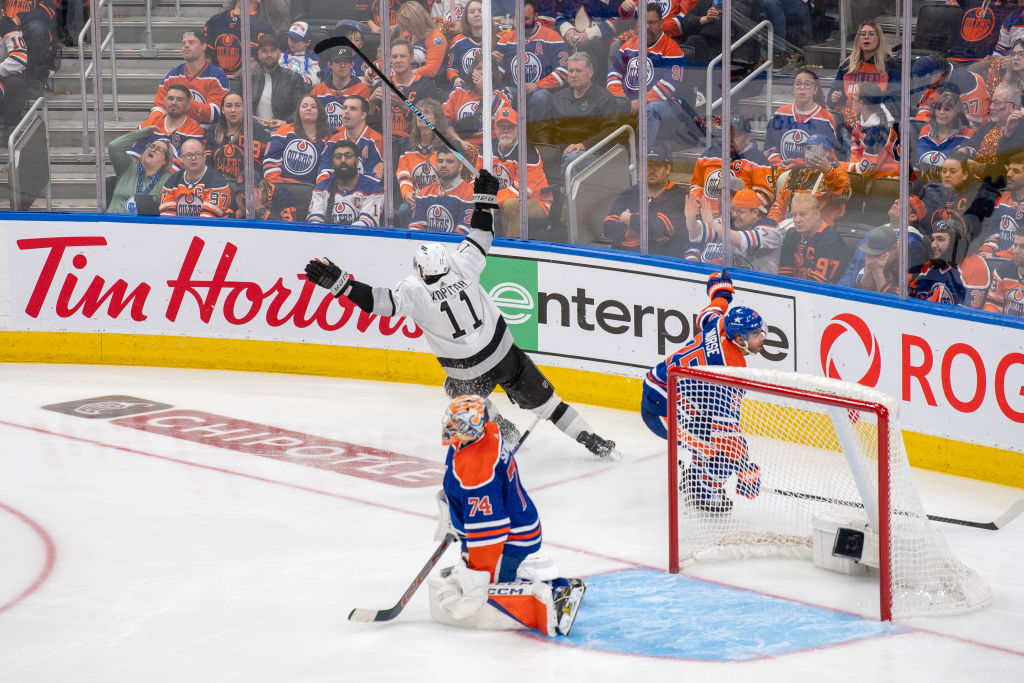The Friday before last, the anti-government demi-celebrity Ammon Bundy forced the cancelation of a high school football game in Idaho. Bundy is the most public scion of the son-heavy reactionary clan that staged an armed standoff with federal agents while occupying Oregon's Malheur National Wildlife Refuge in 2016, in protest against the existence of that refuge and every other one. Ammon and his father Cliven became minor characters in the Fox News Cinematic Universe as a result. Now Ammon keeps himself busy by going places to get real mad about the things that he thinks the government is or might be doing to him, being escorted out, and then doing it all again as the course of human events compels him. In August, Bundy was arrested twice in two days for trespassing at Idaho's statehouse, where he was protesting anti-Covid measures that the state had not yet passed. He's 44.
In this most recent case, oppressive state tyranny had taken the form of Caldwell High School's requirement that fans wear masks and social distance. Bundy was livestreaming his stand on Facebook, which meant that while he was yelling "When are you going to stand for freedom, coach?" at the head coach of visiting Emmett High School, the town of Caldwell's police department reportedly received numerous anonymous threats. "I will not put on a mask!" Bundy responded when parents and fans who had been in attendance confronted him outside. "I have a right not to put on a mask! You guys should be brave enough to do the same thing.” Two of Bundy's sons play for Emmett, which was up by five touchdowns at the time the game was called. "Bundy was told before the game was stopped that he could cost Emmett a win and potentially a playoff spot," the Idaho Statesman noted in its story.
Bundy's exhausting public life is proof that, for some people, this country is an absolute wonderland of public places in which to become upset. But there's something perfectly apposite about this last gratuitous, thirsty, unreasoning tantrum happening at a football game. No venue, and no tragicomic streaming meltdown, could have better anticipated or mirrored the President and his party belatedly attempting to defeat a rampaging pandemic with old-fashioned smash-mouth football.
The broader national failure to manage or even really confront the pandemic is not entering a baroque phase, really; it has had no non-baroque phases. But last week's tragicomic pivot, which began with President Donald Trump cutting a clammy promo claiming his own personal victory over Covid-19 and devolved into something even dumber, is honest in the ways that previous failures have not been. Trump has always responded to adversity by simultaneously quitting and declaring victory; this has, because of how things work for rich people, mostly worked out for him. Trump and his acolytes could not accept the reality of the pandemic because it kept happening to other people, and because other people are not meaningfully real to them.
When Trump himself finally, preposterously, inevitably got sick, he was at last finally invested in the whole thing. When Trump emerged on what either is or isn't the other side of his illness, vibrating and fluttering and looking even more like a photographic negative of himself than usual, he brought with him a realization. He had faced Covid and bested it, and in so doing he'd learned that the soaring collective threat of the pandemic was ... exactly what he has always thought everything was all along. In proclaiming that Covid was a test of individual will and personal strength, Trump spoke with a liberation and purpose that couldn't be credited to the various powerful steroids currently bearing him aloft on a storm cloud. He had finally found a way to care about the pandemic, which was to make it about him. He had found a solution that appealed to him, which was to make it about his lifelong fixation on fear and domination in general, and his fear of being dominated in particular. Once he had confirmed that he was in fact immortal and the pandemic was just another binary matter of winners and losers, Trump was free to live as a dumb god.
And so having contracted Covid-19 finally made it possible for Trump to embrace his ultimate destiny as a Covid denier. He couldn't quite agree with himself whether he'd been really sick or never really needed treatment at all, but he'd also lived, which demonstrated to him that the 220,000 Americans who have not survived the disease lacked something that Trump himself had. “I could be one of the diers,” Trump reportedly told a friend while in the hospital. But he wasn't, and so Trump believed he had not just endured but solved the disease through his experience. "This is the real school," Trump said. "This isn't the 'let's read the books' school. And I get it, and I understand it, and it's a very interesting thing."
For as long as people have been playing it, football has been a way of mediating or performing a series of fundamental and even essential American anxieties—about how and what men are supposed to be, mostly, but also what they're for. The game's violence and rigor are supposed to instill a sort of discipline and strength in the men that play it, and so make them better workers or soldiers or bosses or whatever. Attempts to make the game more open or inclusive are invariably received as insults and even as threats, because the things that football is supposed to be about—the old coachy shit about making men who can suffer and fight without complaint—are not supposed to change.
It makes sense that the NFL, like Trump's administration, did not so much fail to plan for Covid as make a principled choice to go on misunderstanding it. There are only so many ways to try to pull off a football season in a country that's being overrun with a pandemic. The NFL attempted zero of those. This was not just because the few options available are difficult and annoying and require massive compromises and collective action, although that surely didn't make them more appealing. It's because the very act of doing that work would be an admission of vulnerability; the facile conceit that makes football work is that the people who play and coach are just different, and both less human and somehow superhuman for it. Every other American sports league has had to warp and wrench itself out of order just to have some kind of season. The NFL, being the NFL, was only and always going to do it without changing a thing.
This isn't to say that the NFL wasn't willing to do new things to make the season work, because the NFL was and is always eager to do things. It's just that the things the NFL did—feats of high-tech hygiene theater, weird stagey rationalization, statements written in the league's trademark military-adjacent syntax—reflected the extent to which the league's power players had refused to do the single most important thing they could have done: Learn how this pandemic works and act accordingly. There was a daunting challenge buried in all that: If teams responded to clubhouse outbreaks per pandemic-management best practices, this season would quickly become untenable. But also: what if everyone involved assessed the challenge in full, weighed the various options, and just decided not to care? How might that work?
The NFL, under Roger Goodell, has always positioned itself as a sort of unofficial branch of the military, a gambit so oafishly overdetermined and under-reasoned that it was both ridiculous and kind of poignant. This time, though, the childish parody and the object of its devotion traded places. Trump's administration approached the pandemic in the same way that NFL owners have traditionally approached everything—high-handedly, begrudgingly, and blithely secure in the knowledge that the consequences of their posturing and inaction were for other people to bear.
It is both much riskier and outlandishly irresponsible to go on denying and ignoring what is known and knowable about the pandemic in favor of some stern and obtuse idiocy. This approach opts for literal human sacrifices precisely because it finds smaller, more figurative sacrifices intolerably dehumanizing; some poor stranger's death is swapped for the right to shop maskless. It's disgusting, but day by day, and from one moment to the next, that jut-jawed denial has emerged as both the easiest and most appealing choice for many of our most powerful and least accountable Americans. In college football, the willingness to weaponize student sections both against opponents and potentially the students filling them out, has become a matter of competitive advantage. The decision not to care opens up many others; as with other Trumpian derelictions, it is no less liberating for being doomed.
Substituting wishful thinking and casual eugenics for actual action can't work. But until the inexorable consequences arrive, that approach offers the comfort of the familiar and requires nothing more than a self-serving sort of faith. ("Any malcontents," Mississippi State coach Mike Leach said after his team got wiped out by Kentucky last weekend, "we're going to have to purge a couple of those.") The critical problem here is not that American culture abhors even the appearance of weakness, but about how much is built upon that belief, and about how that belief rewrites an increasingly brutal status quo into a legible natural order. Because the strongest win, the winners are the strongest. The diers mostly just die. If you believe this, a pandemic isn't a problem to solve. It's just two-a-days.
There is poison in the idea that an unreasoning disease could be defeated in the same way that, say, the Jacksonville Jaguars might be defeated—by being stronger, working harder, staying focused, just being better. But it's a poison whose taste every American knows. Workers and owners both have reason to believe it, but they don't have the same investment. The former must fight in the sun to make it true, while the latter celebrate in the shade those efforts cast. This is Trump's greatest feat of decoupling. It's a final turning away from the idea that a great national struggle might be met together, and towards observing it, warily and impatiently and from a distance, as an aggrieved spectator.
“The good Lord gave you a body that can stand most anything," Vince Lombardi either did or didn't say. "It's your mind you have to convince.” Like a lot of football aphorisms, it's instructive mostly because of how it makes purpose and reason enemies. Also like a lot of football aphorisms, it is howlingly insufficient in a non-football context. It only looks brave, or even useful. It's mostly just about how best to tell a lie.
If you liked this blog, please share it! Your referrals help Defector reach new readers, and those new readers always get a few free blogs before encountering our paywall.
Editor. Co-host of The Distraction.
Read More:
Stay in touch
Sign up for our free newsletter
